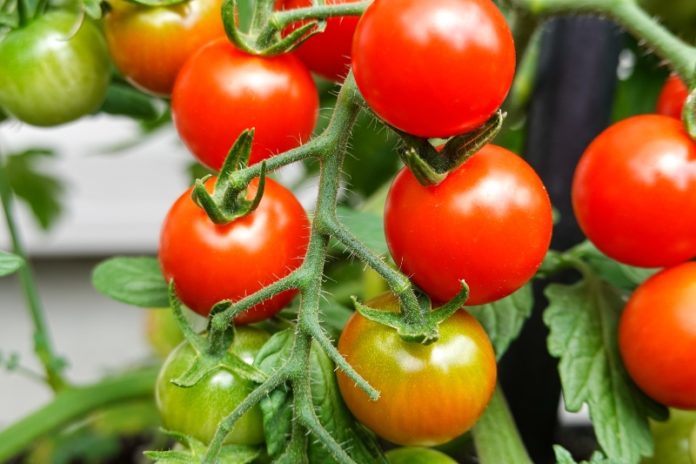by Shelly Barnes, Extension Agent, Family, and Consumer Sciences, Wilson County, TN
Did you know tomatoes may not be considered to be highly acidic? New tomato varieties, over-mature fruits, and tomatoes from dead or frost-killed vines may have a pH greater than 4.6. To ensure a safe acid level for boiling water canning of whole, crushed, or juiced tomatoes, it is recommended to add bottled lemon juice or citric acid directly to jars before filling the jars with the product.
Tomatoes can be preserved by drying, freezing, or pickling, as well. They can even be used in making fruit spreads like jams, jellies, and marmalades depending on their acid level. Tomatoes are a great item to dry. They do not need to be blanched and are dried to a crisp.
Freezing tomatoes will likely result in a soft texture and is more appropriate for cooking, such as in soups, stews, and spaghetti sauces. Tomato products, such as chili sauce and catsup, can be frozen.
If you decide to pickle your tomatoes, commercially prepared vinegar is typically needed to achieve the required acidity. Do not change vinegar, food, or water measurements in a recipe or use vinegar with unknown acidity. Use only recipes with tested quantities of ingredients. There must be a minimum, uniform level of acid throughout the mixed product to prevent the growth of botulism.
Through its land-grant mission of research, teaching, and extension, the University of Tennessee Institute of Agriculture touches lives and provides Real. Life. Solutions. ag.tennessee.edu
UT Extension provides a gateway to the University of Tennessee as the outreach unit of the Institute of Agriculture. With an office in every Tennessee county, UT Extension delivers educational programs and research-based information to citizens throughout the state and provides equal opportunities in all programming and employment. In cooperation with Tennessee State University, UT Extension works with farmers, families, youth, and communities to improve lives by addressing problems and issues at the local, state, and national levels.
For more information on this or other family topics, contact Shelly Barnes, Family and Consumer Sciences Extension Agent for UT Extension in Wilson County. Barnes may be reached at 615-444-9584 or by email at [email protected]. You may also visit our Extension Explores web resources at tiny.utk.edu/ExtensionExplores.
































